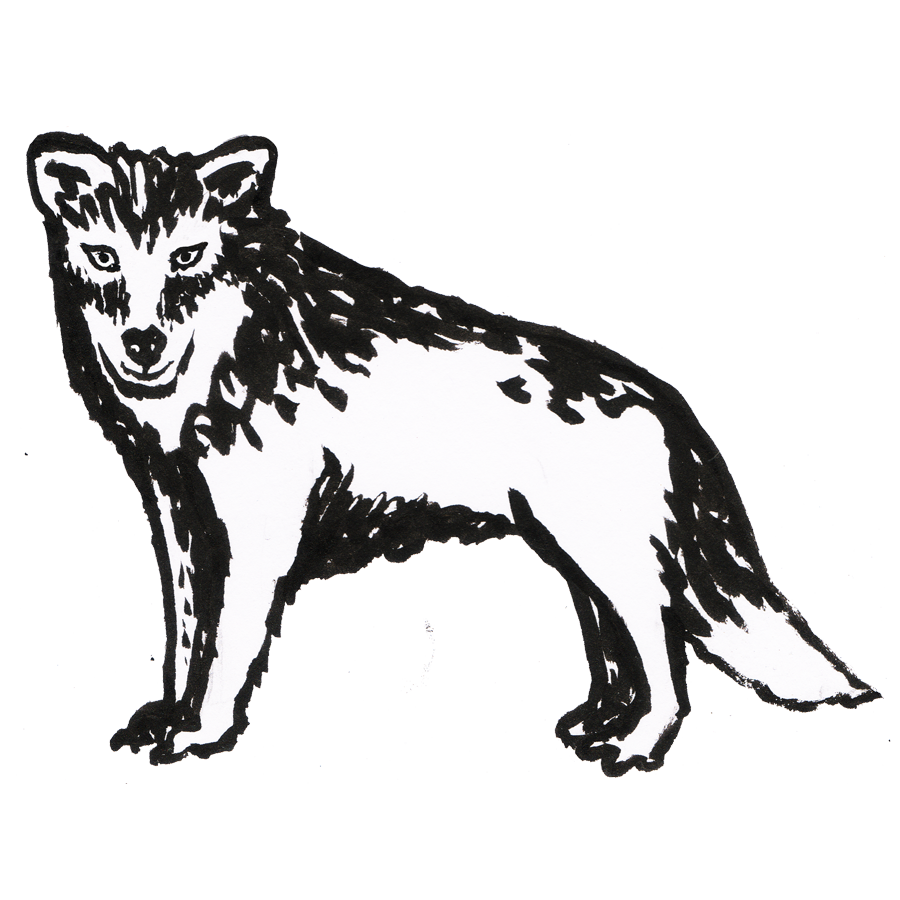
Gregory McElwain

Francisco Santiago-Ávila
Human-wolf relations are anything but straightforward as sources of hope for mixed communities. Few species have been subject to wilder human projections than wolves. They have been vilified, cast as the ultimate beast and the mythical opposite of humans, something quite aptly described by Midgley in her “The Concept of Beastliness”-paper (1973). At the same time, wolves have been romanticized, idealized as symbols of a pristine nature better off without humans. Wolves have been hunted to extinction, only to be reintroduced as champions of rewilding. Now, as the pendulum swings once more, they face renewed threats of expulsion from the mixed communities.
The National Wolf Conversation describes itself as an “unprecedented effort to convene people across the nation to engage around the longstanding conflict about wolves in the lower 48. Spanning three years, the conversation aims to give voice to all perspectives, build understanding, and determine a shared path forward.” It is an interesting application of peacemaking practices developed in the human context to human-animal-relations. This time, wolves are neither just “problems” nor “protégés”, but agents in their own right, entitled to be represented as stakeholders. For this team, the goal is to exchange general expertise and specific experiences with this experiment, fostering dialogue not just among themselves but also with students and the wider community.
Prof. Dr. Greg McElwain
I am Professor of Philosophy and Religious Studies at The College of Idaho, USA. I first interacted with Mary Midgley while in grad school in 2005 and later visited and interviewed her for my dissertation on the mixed community in 2011. This was the first of our yearly visits/interviews in Newcastle from 2011-18, which provided valuable background for my book Mary Midgley: An Introduction (London: Bloomsbury Academic, 2020). My research has focused on the intersection of animal and environmental ethics, where Midgley and the mixed community feature prominently. I have fond memories of visiting with her in Newcastle and am truly grateful for our collaboration during the final years of her life.
I am currently working on a second book titled Mary Midgley on What Matters: Conversations on Science, Ethics, and Nature (London: Bloomsbury Academic, Forthcoming), which is a thematically-curated collection of my philosophical conversations/interviews with Midgley from 2011-18. I enjoyed participating in the first biscuit tin journey, and I try to keep up with the relevant Midgley happenings on Bluesky and X.
Dr. Francisco Santiago-Ávila
Fran researches and practices the application of nature ethics to our mixed-community of people, animals and nature, with a focus on the promotion of worldviews rooted in non-anthropocentrism, an ethic of care, and justice.
His quantitative research has focused on the evaluation of the impact of policies and interventions to both conserve and prevent conflicts with large carnivores, specifically with endangered wolves in the US (gray, Mexican, red). His qualitative research interest and advocacy work focus on the promotion of ethical deliberation to equitably consider animal claims within the policy process, and the exploration of worldviews that promote the flourishing of our entire community of life.
Fran is a graduate of the University of Puerto Rico – Río Piedras (BA, Political Science and Economics), Duke University (MA, Public Policy and MS, Environmental Management) and the University of Wisconsin-Madison (PhD, Environment & Resources). A founding board member of PAN Works, he is also the Director of Advocacy at Washington Wildlife First. Before that he was the Science and Ethics Manager for Project Coyote, and a Postdoctoral Research Associate at the Carnivore Coexistence Lab, University of Wisconsin-Madison.
Programme details coming soon!

Wolves
